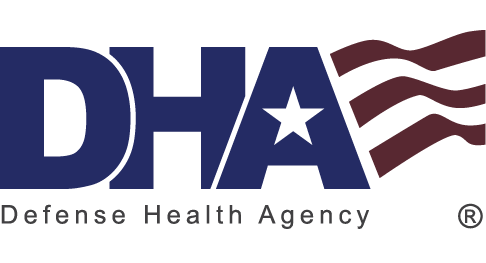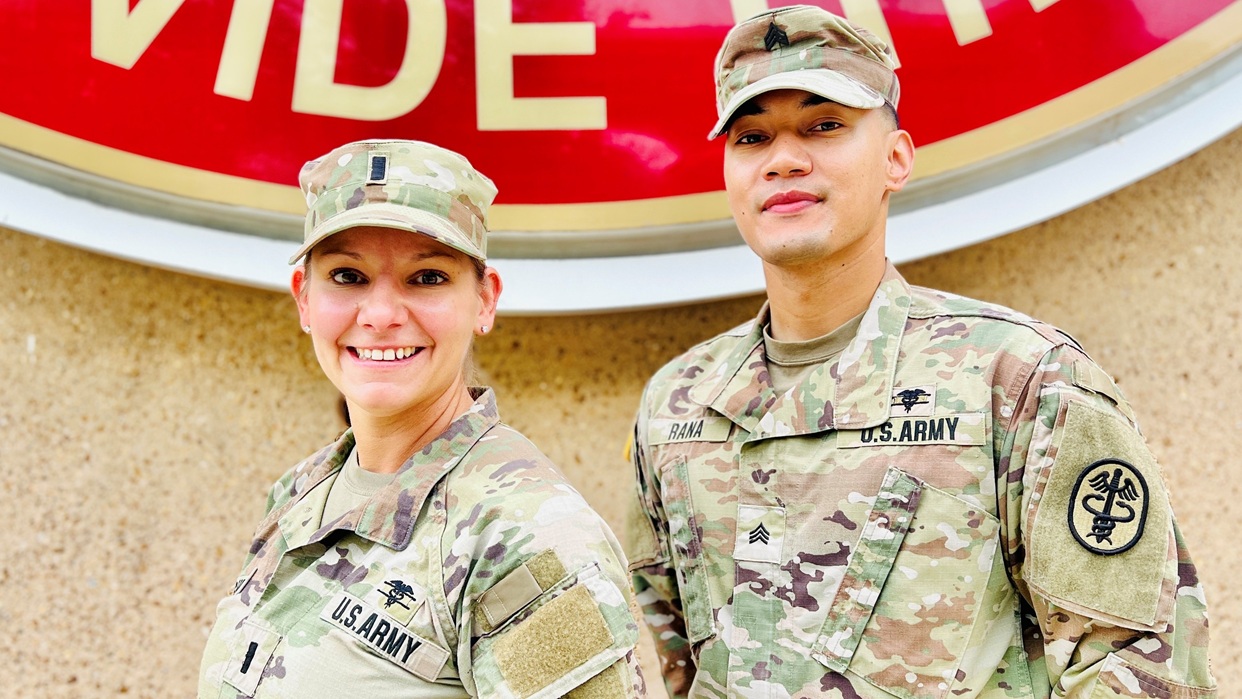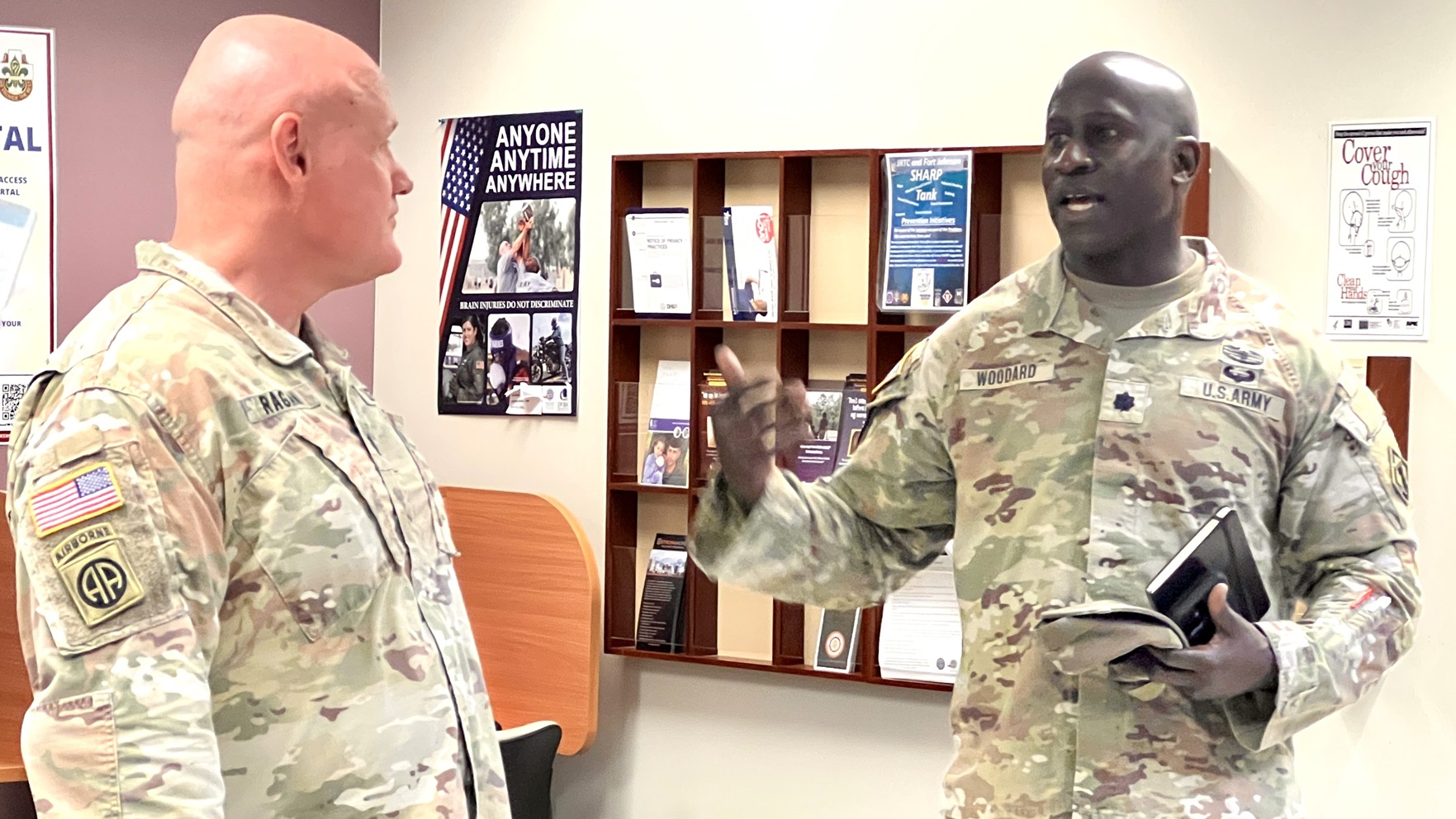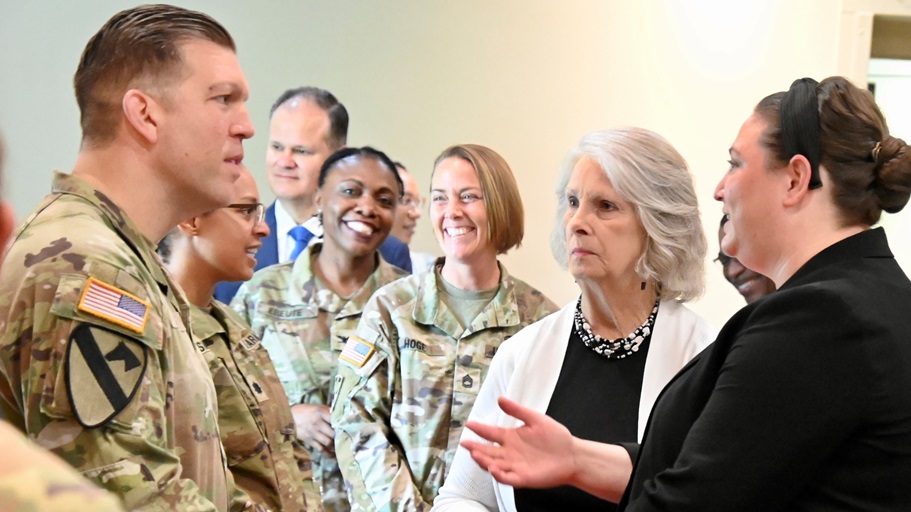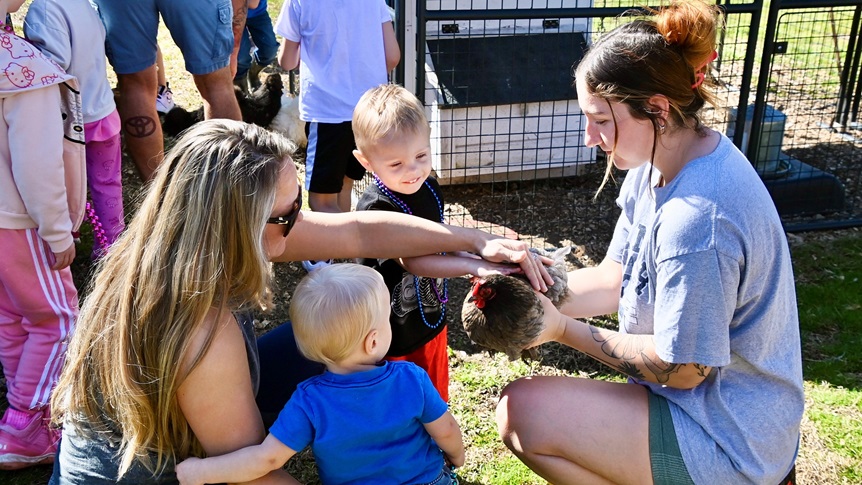Aug. 11, 2025 | By Jean Graves, Bayne-Jones Army Community Hospital
FORT POLK, La. — Two soldiers from Bayne-Jones Army Community Hospital became part of a small community of highly skilled Army medical professionals Aug. 11, earning the Expert Field Medical Badge during the Expert Infantry, Soldier and Field Medical Badge testing event hosted by the 3rd Brigade Combat Team, 10th Mountain Division at the Joint Readiness Training Center and Fort Polk.
First Lt. Crystal Absher, a registered nurse in BJACH’s emergency department, and Sgt. Jashmon Rana, a behavioral health specialist, were among only 15 EFMB awardees—out of more than 1,000 E3B candidates—to successfully complete the rigorous, multi-day assessment.
The E3B event is one of the Army’s toughest challenges, testing candidates on land navigation, weapons proficiency, medical skills, and more. The EFMB adds another layer of difficulty: a written examination covering medical doctrine and procedures, which the other badges do not require.
To earn the EFMB, soldiers must also complete the Tactical Combat Casualty Care Lane, a timed scenario requiring them to treat and triage three simulated casualties in the correct sequence without causing further harm. This lane alone involves more than 200 critical steps per patient, with all nine major tasks and at least 10 of 12 minor tasks required for a passing score.
Master Sgt. Justin Davis, BJACH operations NCOIC served as a test board member for this year’s event. As a badge holder himself, he said the badge represents more than technical skill. “The EFMB symbolizes the soldier is dedicated and proficiently trained in all Army and medical tasks,” Davis said. “Earning the badge shows the soldier cares about their craft and takes pride in being the best of the best.”
For Absher, the path to EFMB was as much mental as it was physical. As a lifelong competitor who has run marathons, triathlons and mud runs, she had long wanted to attempt the event, but this was her first opportunity. “I enjoy challenges, but I knew the 12-mile ruck would be my biggest hurdle,” Absher said. “Before EFMB, I had only completed two road marches in training, neither greater than 2.5 miles. The thought of doing 12 miles in three hours with a 35-pound ruck in full kit terrified me.”
Absher trained for months, increasing her ruck distances and practicing on the actual route. On test day, she credits her spouse for keeping her on pace to cross the finish line in time. She said she stayed motivated by giving herself grace and focusing on becoming “stronger and better” each day, knowing many candidates attempt the EFMB multiple times before earning it. “EFMB allowed me to experience medical care outside of the hospital setting,” she said. “It’s important to challenge ourselves. Getting outside of our comfort zones will ensure we remain at the top of our profession and provide the best care possible.”
Rana’s road to the EFMB began years before he donned the Army uniform. Growing up in Nepal, he dreamed of serving in the military, inspired by a cousin who was a captain. After immigrating to the U.S. in 2015, he enlisted in 2023 as soon as he earned permanent residency. The Army helped him gain citizenship, and now, the EFMB. “I’m a behavioral health specialist, but I am a soldier first,” Rana said. “This badge proves I can perform in the field, under stress, and to the same standards as any medic in Army Medicine. It’s one of the highest honors in our profession.”
For Rana, the Louisiana heat and fatigue were the most challenging parts. “People were going down left and right from the heat,” he said. “When you’re exhausted and your mind is pushed to the limit, it’s easy to make mistakes — but that’s where you separate yourself from others by staying locked in and executing every step to standard.”
BJACH began the week with four EFMB candidates; two earned the badge. The final test came during the culminating event — a 12-mile ruck march completed in under three hours, immediately followed by a weapons functions check.
Col. Patrick Miller, BJACH commander, said he could not be prouder of Absher and Rana. “Earning the EFMB is a tremendous accomplishment for any soldier,” Miller said. “First Lieutenant Absher and Sergeant Rana represent the very best of Army Medicine. Their achievement reflects their personal dedication, professionalism and resilience, and it brings great credit to our entire organization.”
The EFMB badging ceremony took place at 9 a.m. on Mountain Field, where leaders, peers and family members celebrated the achievement.
Whether candidates earned the badge or not, Davis said the experience strengthens Army Medicine. “Even if you don’t earn it the first time, you walk away sharper, more confident and better prepared to serve,” he said.

